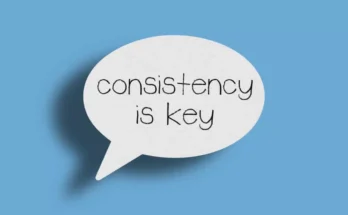Career advice can literally change your life; however, not every piece of advice applies to every situation. Over time, we accumulate a hodge-podge of advice, some that has thrust our careers forward, and others that we were apprehensive to undertake. In this blog, we investigate some of the best, and then the worst, career advice, and look at why it is of value and what to do moving forward.
1. The Best Career Advice
A. Engage in Lifelong Learning.
Given that the entire world is changing, whether it is technology or industry, the best career advice is to always engage in learning. Whether out of formal education, professional development opportunities, or just reading more books in the same field, simply being curious and/or investing in a more educated self makes good business sense, and practical learning is the best investment you can make, as a reputable and relevant employee.
Why this works: Lifelong learning keeps your skills sharp and enhances your ability to pivot for new opportunities and keep you aligned with similar and competing offerings. More importantly, it contributes to a growth mindset, so you remain willing to embrace challenges rather than avoid them.
B. Create and Maintain a Network.
It is often said “it’s not what you know, it’s who you know.” Both are values; we need knowledge and contacts to move our careers attach with or to, but regardless of what you prefer, you do need a network. Establishing relationships with individuals in your profession can be critical in establishing credibility and gaining access to opportunities, mentorship, partnerships, collaborations, and opening doors of all sizes for dog-dog socialization. The connections you develop can be a solid foundation for engagement and continued credibility over time.
Why It Works: A robust network provides access to ideas and opportunities you may not have discovered through your own networks. It also keeps you informed about new trends in your industry and can help you through career transitions smoothly.
C. Take Risks and Get Comfortable Being Uncomfortable
Staying with what is familiar looks and feels safe, but career growth will happen at times only with calculated risks. Whether it is changing industries, taking on a challenging project, or embarking on a side-hustle, stretching beyond your area of comfort allows you to discover new areas of strength.
Why It Works: Risk-taking enables innovation and personal growth. The kind of career advancement achieved through taking risks is not only awarded new skills, but also the opportunity to learn to be confident in yourself. And sometimes, it leads to delightful surprises that instigate longer-term career satisfaction.
D. Find a Mentor or Be One.
Engaging a mentor can help you make challenging decisions and help you process the experience of someone who has been in your shoes before. More than anything mentors provide real and usable information to help you navigate your career without the anxiety of making rookie mistakes. Additionally, mentoring can be equally rewarding for the mentor and can help the mentor prepare themselves for leadership roles.
Why It Works: Mentoring is mutually beneficial, allowing both the mentee and mentor to learn from each experience. A good mentorship leads to deeper trust and fosters an environment of learning in your career circle. Mentees are provided tailored advice and mentors earn more agility in their expertise and confidence in leadership roles.
2. The Worst Career Advice
A. Follow Your Passion and the Money Will Follow.
This phrase may strike as motivating; however, the advice given is perpetually inaccurate. Not every passion has the potential to turn a profit and sometimes impatience in blindly following your passion without the appropriate consideration of reality will ultimately lead to dissatisfaction. Rather than starve yourself chasing after your passion, strive to find some logic in marrying something you’re passionate about, to something that the market demands.
Why It Doesn’t Work: Passion without responsibility guarantees nothing. The reality is that success comes from a confluence of factors including passion, hard work, strategic thinking, and possibly compromise all at once. If you base your decision solely on passion, you may drive your career into farewell burnout or debt.
B. Just Work Hard And You’ll Get Noticed
Hard work is of course a critical element of career success, however it is not the policy guideline. You can work hard for twelve years before you get the adequate permission to contribute again, if you’re not actively promoting yourself and what you’re accomplishing. Growing your career means creating visibility, cultivating relationships, and planning for career development.
Why It Doesn’t Work: Simply working hard and not advocating for yourself never gave anyone the go ahead. If you’re not making sure that your contributions are recognized by the right individuals, you usually wind up in place. Don’t be bashful; frequently remind your superiors of what you are accomplishing to contribute to the growth of the organizations you work for, and keep a track record of it as well.
C. Stick with What you Know.
It may seem sensible to stick to what you know – particularly as “experience” is typically a leading indicator when recruiting and hiring. Still again, it is ultimately cramped thinking. Within any career, industry, or technology, you have a first to cling or fur or whatever you want really to work closely with that would allow you said experience. Likewise, ‘To learn is to adapt’ – since careers, industries, and technology evolve.
Why It Doesn’t Work: If you dedicate your life to strict, overly satisfied, relevant experience and knowledge limitations, chances are it could eventually cost you the exploratory purpose of the interview selection process yourself. Being able to change personally and professionally is often the difference between getting renewed or being left behind.
D. Not Every Career Path is Linear.
The traditional pathway of “climbing the corporate ladder” does not apply to everyone. Some people can be fulfilled and successful without climbing up the corporate ladder. Pursuing success by climbing the corporate ladder can create stress and unhealthy dissatisfaction if it does not correspond to your personal desire for a career trajectory.
Reasons Why This Doesn’t Work: Not everyone finds their way of living in a hierarchical corporate environment. There isn’t one way of being successful, and you may want a career that includes moving horizontally or utilizing freelancing, entrepreneurship, or opportunities with start-ups. Flexibility in a career can allow you to genuinely pursue and express what makes you full of life.
Evaluating Evidence in Career Advice:
All of this advice comes with a caveat—you will want to utilize advice in a personalized way because no two career experiences are exactly the same. The key is to center self-awareness regarding your goals, strengths, and the lay of the land (goals for the industry). One person’s advice may work for them, but not for you. The best advice, and sometimes worst advice, you will hear will head toward the personalized direction through your experience.
Takeaway:
Be willing to accept new ideas and readjust (gently in the movement of learning).
Network more and effectively.
Take calculated risks, but always contemplate as well!
Action your thoughts from within; your experiences and pursuance does not need to be linear.
If you are able to navigate the good from the bad, you are able to build the type of fulfilling career that is successful based on your values that is fulfilling to your self.




